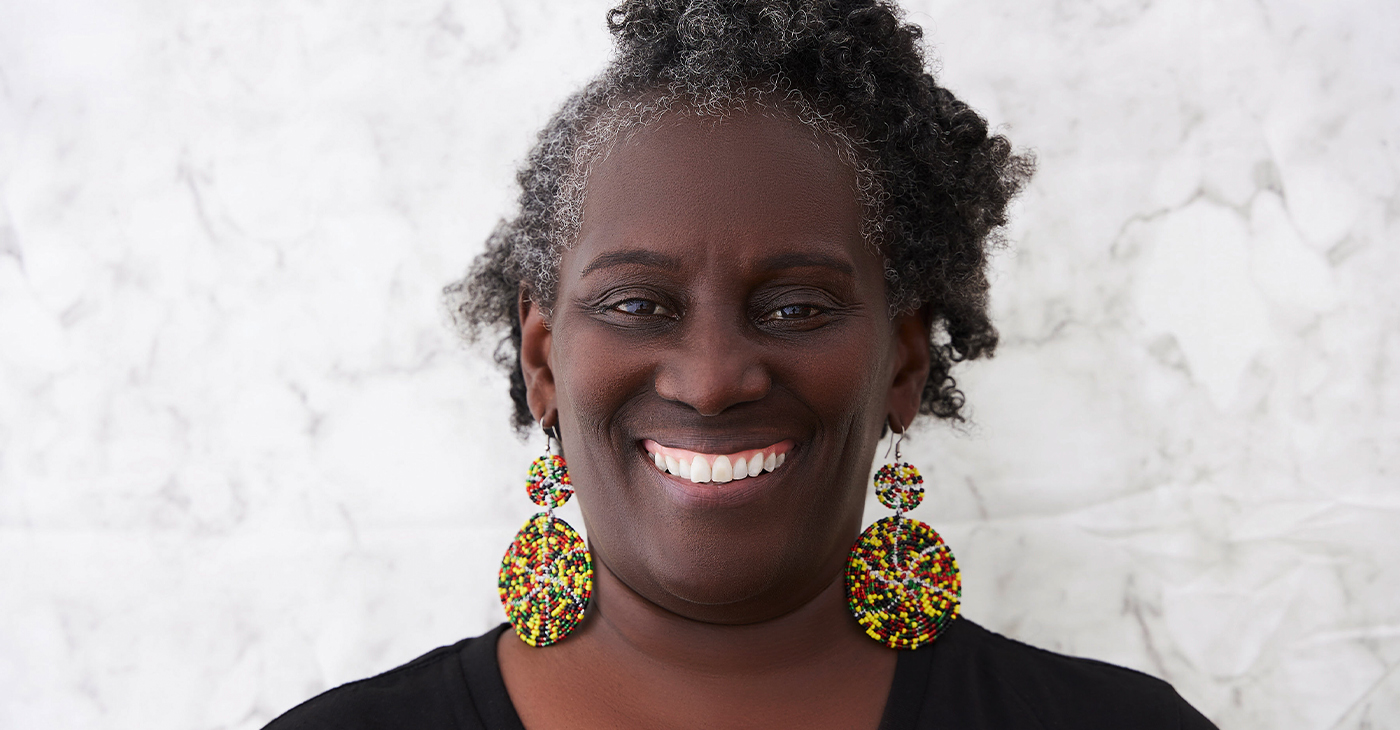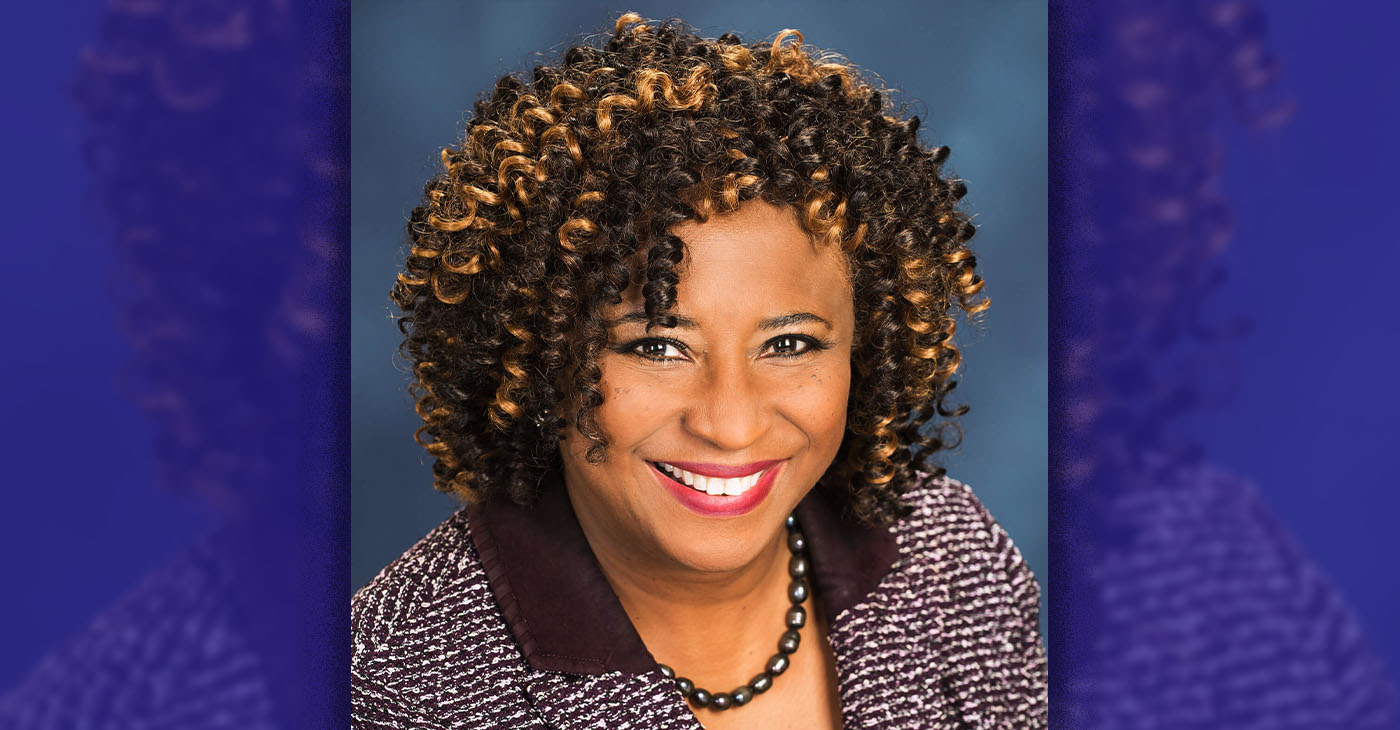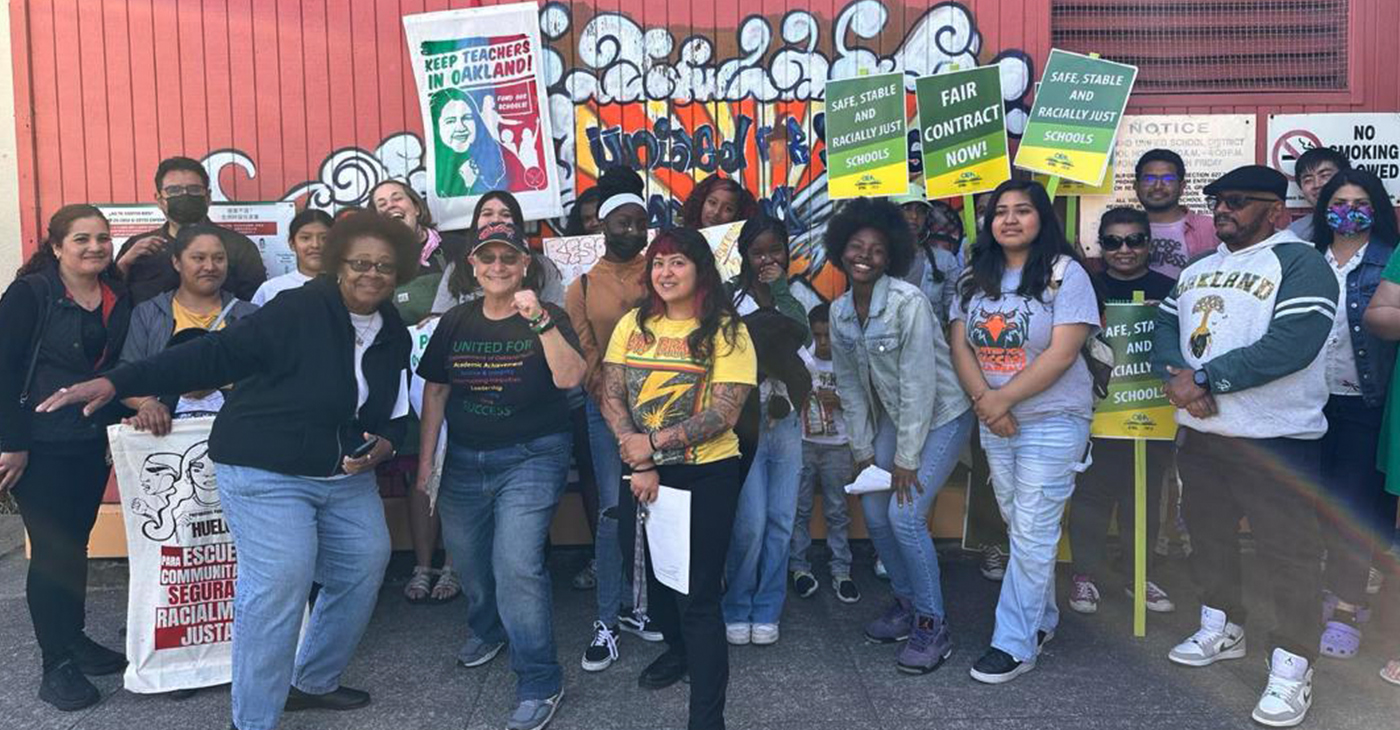Uncategorized
Berkeley Joins Demand for Immigration Reform

From left to right: Amaris Baca-Arana, Kyle Kuwahara, Marco Levine, Scott Kuwahara, Aminah Diaby, and Kaiya Daniels, representing the “Bring Rodrigo Home-Kids for Kids” campaign on the pedestrian bridge over Interstate 80, April 10, in Berkeley. Their classmate Rodrigo Guzman and his family took a trip to Mexico and were denied re-entry into the U.S. due to expired visas. Rodrigo moved to the United States around 2006 and is popular among his classmates and teachers. Photo by Laura Wong.

Ju Hong describes his story as an undocumented immigrant from South Korea, on the pedestrian bridge over Interstate 80, April 10 in Berkeley. Hong, heavily involved in the DREAMers movement, graduated from UC Berkeley with a degree in Political Science and is working towards a Master’s degree in Public Administration at San Francisco State University. Photo by Laura Wong.

City Councilmember Jesse Arreguin at the Berkeley Celebrates Cesar Chavez event. Photo by Judith Scherr.
By Judith Scherr
Calling Berkeley’s pedestrian span over the freeway “The Bridge to Citizenship,” a crowd of about 100 people rallied at the bridge on April 10 for fair immigration reform, joining their voices with hundreds of thousands of others across the country.
Berkeley City Councilmember Jesse Arreguin, son and grandson of farmworkers, spoke before marching across the bridge.
“For too long our undocumented sisters and brothers have been living in the shadows,” Arreguin said. “They are our neighbors, classmates and coworkers. They pay taxes and raise their kids here and they contribute to our local economy. Despite the fact that they are embedded in our community, there’s no easy way for them to become legal citizens.
“For far too long, rather than fixing this broken system, our federal government has been dividing families and communities through raids and deportations. This has to stop.”
People without documents that authorize them to live in the U.S. – there are 11 million in the country and 143,000 in Alameda County — are beginning to speak out about the trials they face. They’re unable to drive or work legally, or even open bank accounts. Some, particularly day laborers, are vulnerable to unscrupulous employers who don’t pay them, understanding that they fear going to the police.
Ju Hong, a San Francisco State graduate student who has lived in the U.S. since he was 11, spoke to the gathering. Stating he is “undocumented and unafraid,” Hong talked about the difficult economic situation that caused his mother to leave her home in South Korea and bring her two children to the U.S.
He didn’t learn about his own immigration status until he was in high school, filling out a college application. ”There’s a social security section where I didn’t know what to put,” Hong said. “So I asked my mom about it and that’s when she told me everything about our situation. We came here with a tourist visa and she renewed additional tourist visas. And during this period, my mom tried to adjust our immigration status. But it didn’t work out. And therefore, we became undocumented. At first I didn’t know what it meant to be undocumented. Until I learned that I’m unable to get a job, obtain a driver’s license, or receive any type of financial aid. And worst of all I was and still am at risk of being deported back to South Korea.”
Recent California legislation allows eligible students to obtain financial aid for college and university.
Representatives from the Alameda County Central Labor Council and a group of fourth graders from Jefferson School sporting “Bring Rodrigo Home” t-shirts led the chanting crowd across the bridge.
The students and their adult advisors have catapulted their deported classmate Rodrigo Guzman into the limelight as a poster child for immigration reform. Rodrigo had lived in Berkeley more than seven of his nine years. He accompanied his parents on a visit to Mexico at Christmastime, but coming home to Berkeley, was stopped at the Houston airport, where authorities determined the family’s visas had expired and deported them to Mexico.
The next day, April 11, some of Rodrigo’s classmates spoke to more than 200 people gathered for the Berkeley Celebrates Cesar Chavez event at the Berkeley Adult School, an event targeting immigration reform.
Kyle Kuwahara, 9, read his letter to President Obama: “….In school we are learning about all these important people like Martin Luther King and Rosa Parks who fought for people’s civil rights and freedom. So what about Rodrigo’s freedom? Who is fighting for his freedom? This is our time to stand up like Cesar Chavez, Yuri Kochiyama and Dolores Huerta to fight for Rodrigo’s rights.”
Next month, the children will travel to Washington D.C. at the invitation of Rep. Barbara Lee to lobby for immigration reform and the return of their friend.
Arts and Culture
Rise East Project: Part 3
Between 1990 and 2020, Oakland lost nearly half of its Black population due to economic and social forces. East Oakland, once a middle-class community, is now home to mostly Black families living in poverty.

The Black Cultural Zone’s Pivotal Role in Rebuilding Oakland’s Black Community
By Tanya Dennis
Between 1990 and 2020, Oakland lost nearly half of its Black population due to economic and social forces. East Oakland, once a middle-class community, is now home to mostly Black families living in poverty.
In 2021, 314 Oakland residents died from COVID-19. More than 100 of them, or about 33.8%, were Black, a high rate of death as Blacks constitute only 22.8% of Oakland’s population.
This troubling fact did not go unnoticed by City and County agencies, and the public-at-large, ultimately leading to the development of several community organizations determined to combat what many deemed an existential threat to Oakland’s African American residents.
Eastside Arts Alliance had already proposed that a Black Cultural Zone be established in Deep East Oakland in 2010, but 2020’s COVID-19 pandemic galvanized the community.
Demanding Black legacy preservation, the Black Cultural Zone (BCZ) called for East Oakland to be made an “unapologetically Black” business, commercial, economic development community.
Established initially as a welcoming space for Black art and culture, BCZ emerged into a a community development collective, and acquired the Eastmont police substation in Eastmont Town Center from the City of Oakland in 2020.
Once there, BCZ immediately began combating the COVID-19 pandemic with drive-thru PPE distribution and food giveaways. BCZ’s Akoma Market program allowed businesses to sell their products and wares safely in a COVID-compliant space during the COVID-19 shutdown.
Currently, Akoma Market is operated twice a month at 73rd and Foothill Boulevard and Akoma vendors ‘pop up’ throughout the state at festivals and community-centered events like health fairs.
“Before BCZ existed, East Oakland was a very depressing place to live,” said Ari Curry, BCZ’s chief experience officer and a resident of East Oakland. “There was a sense of hopelessness and not being seen. BCZ allows us to be seen by bringing in the best of our culture and positive change into some of our most depressed areas.”
The culture zone innovates, incubates, informs, and elevates the Black community and centers it in arts and culture, Curry went on.
“With the mission to center ourselves unapologetically in arts, culture, and economics, BCZ allows us to design, resource, and build on collective power within our community for transformation,” Curry concluded.
As a part of Oakland Thrives, another community collective, BCZ began working to secure $100 million to develop a ‘40 by 40’ block area that runs from Seminary Avenue to the Oakland-San Leandro border and from MacArthur Boulevard to the Bay.
The project would come to be known as Rise East.
Carolyn Johnson, CEO of BCZ says, “Our mission is to build a vibrant legacy where we thrive economically, anchored in Black art and commerce. The power to do this is being realized with the Rise East Project.
“With collective power, we are pushing for good health and self-determination, which is true freedom,” Johnson says. “BCZ’s purpose is to innovate, to change something already established; to incubate, optimizing growth and development, and boost businesses’ economic growth with our programs; we inform as we serve as a trusted source of information for resources to help people; and most important, we elevate, promoting and boosting Black folks up higher with the services we deliver with excellence.
“Rise East powers our work in economics, Black health, education, and power building. Rise East is the way to get people to focus on what BCZ has been doing. The funding for the 40 by 40 Rise East project is funding the Black Culture Zone,” Johnson said.
Alameda County
Help Protect D.A. Pamela Price’s Victory
Alameda County District Attorney Pamela Price is asking supporters of the justice reform agenda that led her to victory last November to come to a Town Hall on public safety at Montclair Presbyterian Church on July 27.

By Post Staff
Alameda County District Attorney Pamela Price is asking supporters of the justice reform agenda that led her to victory last November to come to a Town Hall on public safety at Montclair Presbyterian Church on July 27.
Price is facing a possible recall election just six months into her term by civic and business interests, some of whom will be at the in-person meeting from 6:00-9:00 p.m. at 5701 Thornhill Dr. in Oakland.
“We know that opponents of criminal justice reform plan to attend this meeting and use it as a forum against the policies that Alameda County voters mandated DA Price to deliver. We cannot let them succeed,” her campaign team’s email appeal said.
“That’s why I’m asking you to join us at the town hall,” the email continued. “We need to show up in force and make sure that our voices are heard.”
Price’s campaign is also seeking donations to fight the effort to have her recalled.
Her history-making election as the first African American woman to hold the office had been a surprise to insiders who had expected that Terry Wiley, who served as assistant district attorney under outgoing D.A. Nancy O’Malley, would win.
Price campaigned as a progressive, making it clear to voters that she wanted to curb both pretrial detention and life-without-parole sentences among other things. She won, taking 53% of the vote.
Almost immediately, Price was challenged by some media outlets as well as business and civic groups who alleged, as she began to fulfill those campaign promises, that she was soft on crime.
On July 11, the recall committee called Save Alameda for Everyone (S.A.F.E.) filed paperwork with the county elections office to begin raising money for the next step toward Price’s ouster: gathering signatures of at least 10% of the electorate.
S.A.F.E. has its work cut out for them, but Price needs to be prepared to fight them to keep her office.
In a separate sponsored letter to voters, Price supporters wrote:
“We know that you supported DA Price because you believe in her vision for a more just and equitable Alameda County. We hope you share our belief that our criminal justice system has to be fair to everyone, regardless of their race, gender, ethnicity, religion, or socioeconomic status.
“The Republican-endorsed effort is a blatant attempt to overturn the will of the voters and a waste of time and money. It is an attempt to silence the voices of those who want real justice. We cannot let these election deniers succeed.
“Will you make a donation today to help us protect the win?
“Please watch this video and share it with your friends and family. We need to stand up to the sore losers and protect the win. Together, we can continue to make Alameda County a more just, safe and equitable place for everyone.”
For more information, go to the website: pamelaprice4da.com
or send an e-mail to info@pamelaprice4da.com
Bay Area
Oakland Teachers Walk Out
After negotiating late into the night and months of fruitless bargaining with the Oakland Unified School District, Oakland teachers went out on strike Thursday morning. “Our (50-member) bargaining team has been working for seven months working, making meaningful proposals that will strengthen our schools for our students,” said Oakland Education Association (OEA) Interim President Ismael “Ish” Armendariz, speaking at press conference Monday afternoon.

OEA calls unfair labor practices strike after 7 months of negotiations.
By Ken Epstein
After negotiating late into the night and months of fruitless bargaining with the Oakland Unified School District, Oakland teachers went out on strike Thursday morning.
“Our (50-member) bargaining team has been working for seven months working, making meaningful proposals that will strengthen our schools for our students,” said Oakland Education Association (OEA) Interim President Ismael “Ish” Armendariz, speaking at press conference Monday afternoon.
“OUSD has repeatedly canceled bargaining sessions, has failed to offer meaningful proposals or counterproposals at a majority of the bargaining sessions and has repeatedly failed to discuss certain items,” Armendariz said.
“The days (of bargaining) have been long, and after hours of waiting, the superintendent finally showed up on Sunday night at 11:00 p.m.to meet with our team (for the first time),” he said. “(But) the district continues to come to the table unprepared, and this is unacceptable.”
“This is illegal, and OEA has filed an Unfair Labor Practice charge with the state Public Employment Relations Board (PERB). Under California law, OEA has a right to strike over unfair labor practices,” he said.
OEA represents 3,000 teachers, counselors, psychologists, speech pathologists, early childhood educators, nurses, adult education instructors and substitute teachers, serving 35,000 Oakland public school students. Other labor groups representing school employees include SEIU 1021 and construction unions.
In a press statement released on Tuesday, OUSD said it has been trying to avert a strike.
“The district will remain ready to meet with the teachers’ union at any time and looks forward to continuing our efforts to reach an agreement with OEA … We will continue to do everything possible to avoid a work stoppage.”
“Our children’s education does not need to be interrupted by negotiations with our union, especially given the major offer the District made on Monday,” other district press statements said. “We are committed to continuing to work with our labor leaders to discuss their salaries and support services for our students without the need for a strike.”
OUSD’s latest salary proposal, released this week, includes a 10% raise retroactive to Nov. 1, 2022, and a $5,000, one-time payment to all members.
OEA’s recent salary proposal asked for a 10% retroactive raise to all members, a one-time $10,000 payment to members who return for the 2023-2024 school year, and increases from $7,500 to $10,000 to salaries, based on years of experience.
In addition to pay demands, OEA is making “common good” proposals that serve families and the community, including protecting and enhancing special education programs, putting the brakes on closing schools in flatland neighborhoods, shared school leadership, safety, and support for students.
-

 Alameda County3 weeks ago
Alameda County3 weeks agoAlameda County District Attorney Pamela Price Announces $7.5 Million Settlement Agreement with Walmart
-

 Activism3 weeks ago
Activism3 weeks ago‘Jim Crow Was and Remains Real in Alameda County (and) It Is What We Are Challenging and Trying to Fix Every Day,’ Says D.A. Pamela Price
-

 Bay Area3 weeks ago
Bay Area3 weeks agoIn the City Attorney Race, Ryan Richardson Is Better for Oakland
-

 Activism3 weeks ago
Activism3 weeks agoOakland Post: Week of October 30 – November 5, 2024
-

 Alameda County2 weeks ago
Alameda County2 weeks agoD.A. Price Charges Coliseum Flea Market Vendors in Organized Retail Theft Case
-

 Activism3 weeks ago
Activism3 weeks ago‘Criminal Justice Reform Is the Signature Civil Rights Issue of Our Time,’ says D.A. Pamela Price
-

 Activism3 weeks ago
Activism3 weeks ago“Two things can be true at once.” An Afro-Latina Voter Weighs in on Identity and Politics
-

 Arts and Culture3 weeks ago
Arts and Culture3 weeks agoMacArthur Fellow Jericho Brown’s Poetry Reflects Contemporary Culture and Identity













































